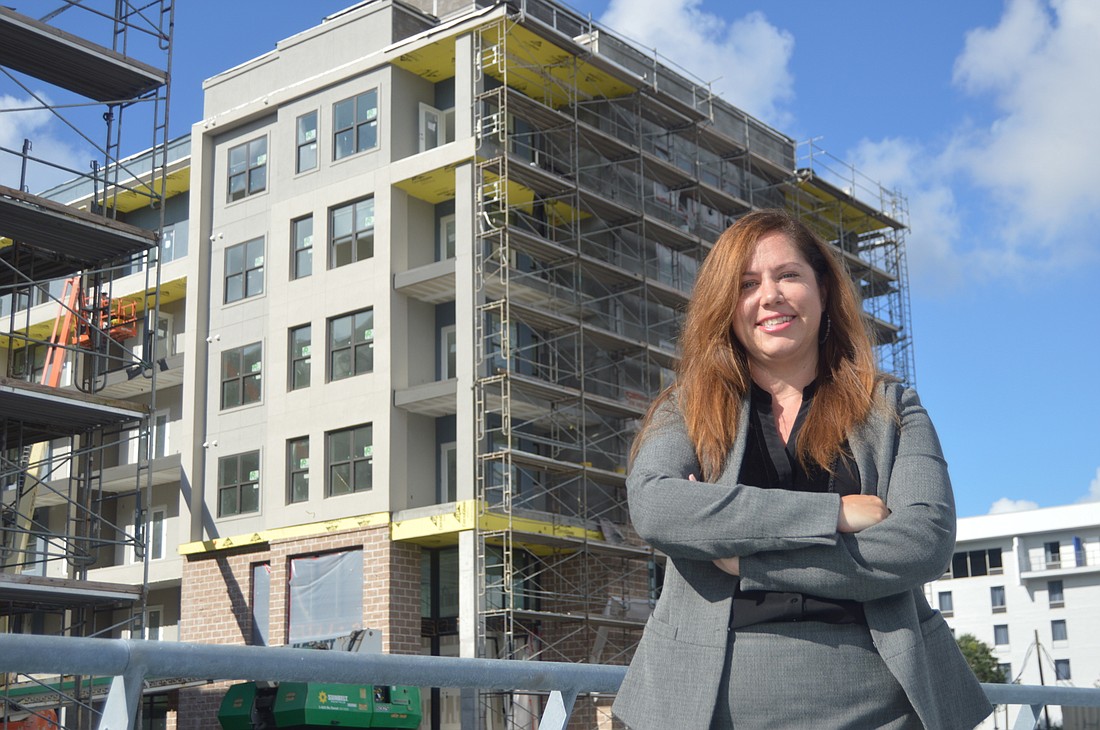
Apartment construction is booming across Jacksonville with a 51 percent increase in new units this year compared with last year. But the growth isn’t enough to offset soaring rents and occupancy rates.
Jacksonville ranked fourth among the nation’s large cities with the fastest rent growth, according to RENTCafé, a national apartment search website. Rents rose 5.2 percent from July 2017 to July of this year, according to the website’s Aug. 10 report.
New apartments in the Jacksonville area are leasing so quickly, construction has yet to keep prices in check.
“There are a lot of people that need to be housed and we just don’t have the inventory for them,” said Morgan Williams, associate director of multifamily investment services at Colliers International. “Absorption is still outpacing construction. There is still more demand than units available.”
Presently, 6,227 units are being built in Jacksonville and another 5,172 have been proposed, said Cliff Taylor, senior vice president of multifamily investments at CBRE. They join roughly 76,380 apartments in existence as of late 2017.
Job growth explains much of the demand. In the last year (July 2017 to July 2018), employment rose 3.2 percent in Jacksonville, according to the Florida Department of Economic Opportunity.
Jacksonville attracts 30,000 new residents a year and most move here for jobs, Williams said.
But the demand for apartments also reflects a rise in the number of renters, who now make up 36 percent of Jacksonville’s households, according to a 2018 report from the National Low Income Housing Coalition.
Strong demand for apartments has knocked Jacksonville’s vacancy rate down to about 4 percent, the lowest point in 20 years, according to a 2017 snapshot of the city’s multifamily housing status from Colliers International.
“That number underscores why we’re seeing all this construction right now,” Taylor said. “Jacksonville is one the strongest rent growth cities in the nation.”
Yet, Taylor hesitates to call it a “boom.”
“The city, ultimately, is just growing up,” he said. “And there’s a real need for more product. It might feel like a boom. But in reality, it’s a natural reaction to very strong job growth.”
Apartments aren’t the only rentals experiencing a crunch. Rental homes are as well, said Shelby Heinemann, who oversees the property management division for Berkshire Hathaway HomeServices Florida Network Realty.
“We’re definitely seeing a smaller number of available rental properties,” she said. “It’s because the owners are actually turning around and selling the houses now because home prices have gone up. They’re finally able to sell the house and walk away and make a little profit.”
That means renters don’t have time to dawdle.
“If you like something, you definitely have to move fast on it,” Heinemann said. “The supply is not there, and the demand is high.”
This is all good news from an investment standpoint.
“There’s a lot of U.S. and international capital chasing deals in Orlando, and it branches out to Tampa and Jacksonville from there,” Taylor said.
“We’ve been playing catch-up a little bit,” he said. “And as long as we have in-migration at the level we have and job growth at the level we have, there will be a continued demand for more product.”